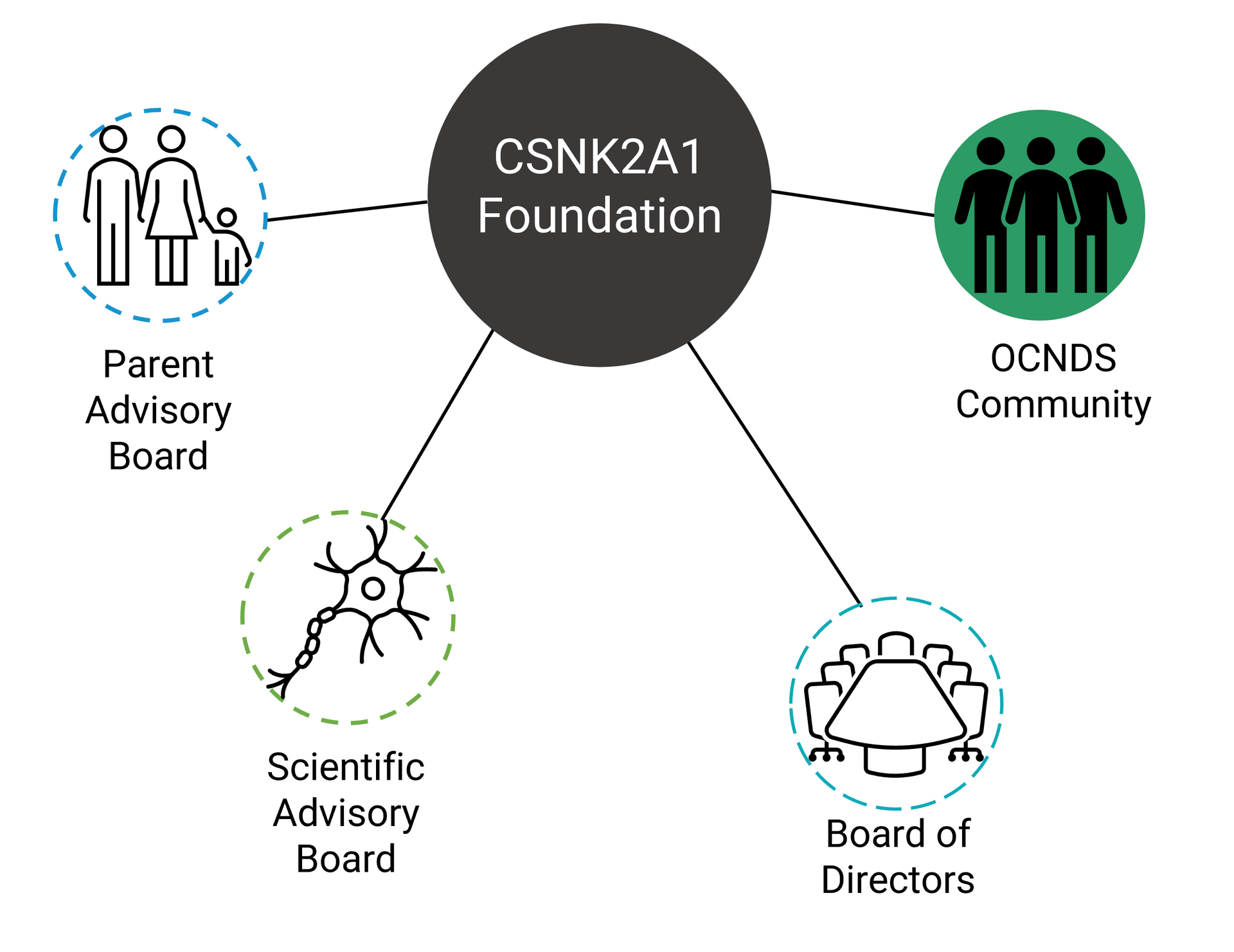About Us
Mission
CSNK2A1 Foundation is focused on finding a cure for Okur-Chung Neurodevelopmental Syndrome and ensuring affected individuals have the opportunities and supports necessary for happy and full lives.
Our mission will be achieved by our OCNDS community working together as one.
Our Four-Pillar Structure
We operate on a 4-pillar structure: our
Board of Directors (BOD),
Scientific Advisory Board (SAB),
Parent Advisory Board (PAB), and the broader OCNDS Community. We are the only organization dedicated to OCNDS. As such, we play a critical role in facilitating OCNDS research.

The Best Way to Predict the Future is to Create It.
Objectives & Goals 2024-2026
- Engage, educate and empower the global OCNDS patient community and strengthen the patient voice;
- Remove barriers to participation such as language, scientific knowledge, and socioeconomic;
- Provide opportunities for families, clinicians, and researchers to work together to set research priorities;
- Augment all of our Boards - Board of Directors, Scientific Advisory Board, and PAB - with diverse global experts;
- Continue to develop and characterize research tools? (e.g., IPSC cells, animal models) and make them widely available to researchers, which will make it easier for researchers to develop treatments for OCNDS and gain a better understanding of OCNDS;
- Launch high-impact studies with researchers around the globe to investigate the cause, key cell types, and new treatment targets for OCNDS;
- Maintain and grow our patient registry program;
- Facilitate and plan in-person and virtual family meetings to foster hope, community, collaboration, and a further understanding of OCNDS;
- Continue to support the CSNK2A1/OCNDS international natural history study at Simons Searchlight and grow our biobank;
- Collaborate, brainstorm, and work with other rare diseases groups;
- Raise the profile of OCNDS through media attention, public awareness campaigns, and advocacy;
- Orchestrate expansion of fundraising efforts;
- Initiate clinical trial readiness programs.
CSNK2A1 Foundation is operated and funded through a committed team which includes volunteers, advocates and researchers.
CSNK2A1 Foundation is a 501(c)(3) non-profit organization.
